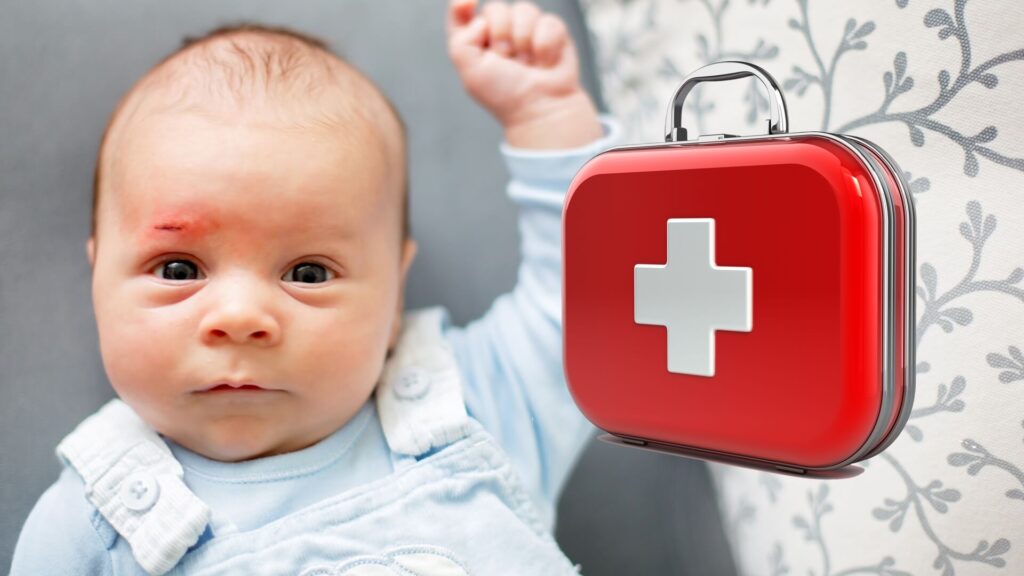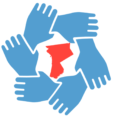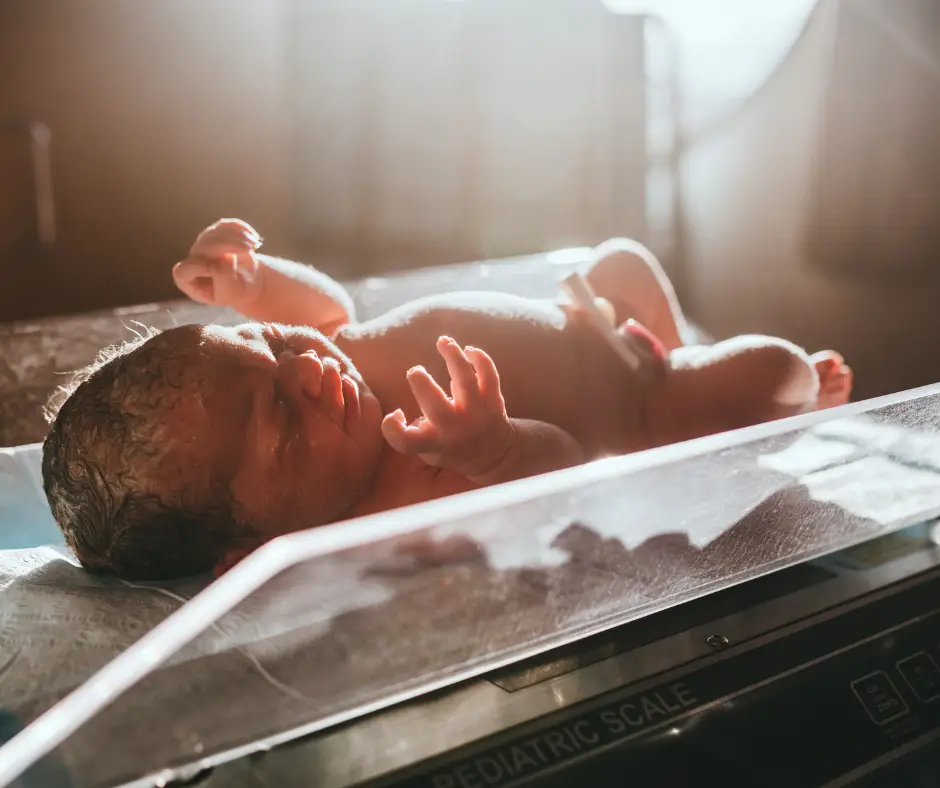
Becoming a parent is an incredible journey filled with love, excitement, and new responsibilities. One of the most important things you can do to protect your little one is to learn infant safety and first aid. From understanding how to prevent common household accidents to knowing what to do in an emergency, being prepared can make all the difference.
In this guide, we’ll cover key aspects of infant safety, including safe sleep practices, choking prevention, CPR basics, and common first aid techniques every parent or caregiver should know.
1. Safe Sleep Practices: Reducing the Risk of SIDS
Sudden Infant Death Syndrome (SIDS) is a concern for many parents, but following safe sleep guidelines can significantly reduce the risk.
Place baby on their back for every sleep—this is the safest position.
Use a firm mattress with a fitted sheet; avoid soft bedding, pillows, or stuffed animals.
Keep the crib empty—bumpers, blankets, and toys can be hazardous.
Maintain a smoke-free environment—secondhand smoke increases SIDS risk.
Share a room, not a bed—room-sharing (but not bed-sharing) can be safer.
2. Choking Hazards and Prevention
Infants explore the world by putting things in their mouths, which increases the risk of choking. Here’s how to prevent choking:
Cut food into small, soft pieces—avoid grapes, hot dogs, nuts, and popcorn.
Supervise during feeding—never let babies eat while lying down or playing.
Check toys for small parts—make sure toys follow safety guidelines.
Keep small objects out of reach—buttons, batteries, and coins are common hazards.
What to Do if Your Baby is Choking
- Assess the situation: If the baby is coughing, let them try to clear the object on their own.
- For infants under 1 year old:
- Give 5 back blows – Hold the baby face-down on your forearm, supporting their head, and give firm blows between their shoulder blades.
- Give 5 chest thrusts – Turn the baby face-up, place two fingers in the center of the chest, and push firmly.
- If the baby is unconscious, call 911 and begin CPR.
3. Infant CPR: A Life-Saving Skill
Cardiopulmonary Resuscitation (CPR) is crucial if a baby is unresponsive and not breathing. The steps for infant CPR (under 1 year old) include:
- Check for responsiveness—gently tap the baby and call their name.
- Call 911 if there’s no response.
- Give 30 chest compressions—use two fingers in the center of the chest, pressing about 1.5 inches deep.
- Give 2 rescue breaths—cover the baby’s nose and mouth with your mouth and give gentle breaths.
- Repeat the cycle until help arrives or the baby starts breathing.
Taking a certified infant CPR course through organizations like the American Red Cross or the American Heart Association is highly recommended.
4. Common Infant First Aid: Quick Responses for Everyday Emergencies
Burns
What to do:
- Cool the burn with cool (not icy) water for at least 10 minutes.
- Do NOT apply butter or ointments.
- Cover with a clean, non-stick bandage and seek medical attention if severe.
Falls and Head Injuries
What to do:
- If the baby falls, check for alertness, unusual behavior, or vomiting.
- If the baby is unconscious, has a seizure, or is not acting normally, seek emergency help immediately.
- Apply a cold compress to any bumps or bruises.
Fevers
🚨 What to do:
- A rectal temperature over 100.4°F in an infant under 3 months requires immediate medical attention.
- Keep baby hydrated and comfortable, and dress them in light clothing.
- Avoid giving medication without consulting a doctor.
Poisoning
🚨 What to do:
- Call Poison Control (1-800-222-1222) immediately if you suspect ingestion of something harmful.
- Do not induce vomiting unless directed by a medical professional.
- Keep household cleaners, medications, and toxic plants out of reach.
5. Essential Infant First Aid Kit Checklist
Every home should have a well-stocked infant first aid kit. Here’s what to include:
🩹 Baby thermometer
🩹 Infant acetaminophen (Tylenol)
🩹 Saline drops & bulb syringe for congestion
🩹 Bandages & antiseptic wipes
🩹 Tweezers for splinters
🩹 Digital thermometer
🩹 Emergency contact list (doctor, Poison Control, 911)
Final Thoughts: Be Prepared, Stay Calm
Learning infant safety and first aid can be lifesaving and gives parents confidence in handling emergencies. Consider taking an infant first aid and CPR class—it’s one of the best investments you can make in your child’s safety.
By following these proactive safety measures and knowing what to do in an emergency, you can create a safe and secure environment for your little one to thrive.
📌 Want to learn more? Many local hospitals and community centers offer infant CPR and safety courses—check with your pediatrician for recommendations!
Video Resoruces:
English:
Spanish:
INFANT FIRST AID & CPR TRAINING PROVIDERS
1. American Red Cross – Metro NY North Chapter
- Location: Hawthorne, NY
- Services: Infant and child CPR, first aid, AED certification courses (online & in-person)
- Phone: (914) 946-6500
- Website: www.redcross.org
2. Westchester Medical Center – Family and Infant Education
- Location: Valhalla, NY
- Services: Newborn care, CPR for infants, safe sleep practices
- Phone: (914) 493-7000
- Website: www.westchestermedicalcenter.org
3. NewYork-Presbyterian Hudson Valley Hospital – Prenatal and Parenting Classes
- Location: Cortlandt Manor, NY
- Services: Infant safety classes, CPR, newborn care workshops
- Phone: (914) 737-9000
- Website: www.nyp.org/hudson-valley
PUBLIC HEALTH & SAFETY PROGRAMS
4. Westchester County Department of Health – Child Health Services
- Location: White Plains, NY
- Services: Safe sleep education, home safety, parenting programs
- Phone: (914) 813-5000
- Website: health.westchestergov.com
5. Putnam County Department of Health – Maternal & Child Health Division
- Location: Brewster, NY
- Services: Infant care safety guidance, community health nurses, home visits
- Phone: (845) 808-1390
- Website: www.putnamcountyny.com/health
PARENT SUPPORT & COMMUNITY EDUCATION
6. Open Door Family Medical Center – Family Education Services
- Locations: Ossining, Port Chester, Mount Kisco, Sleepy Hollow, Brewster
- Services: New parent education, home safety, infant wellness and CPR referrals
- Phone: (914) 941-1263
- Website: www.opendoormedical.org
7. United Way of Westchester and Putnam – 211 Hudson Valley Helpline
- Coverage: Westchester and Putnam
- Services: Referrals to local CPR courses, safety workshops, parenting programs
- Phone: 2-1-1 or 1-800-899-1479
- Website: www.hudson211.org
8. Babies & Beyond – Community CPR & Infant Safety Courses
- Location: Mobile programs in Westchester and Putnam
- Services: In-home and small group infant CPR, first aid, safety seminars for parents
- Email: [email protected]
- Website: www.babiesandbeyond.org
Legal Disclaimer: The information provided by our nonprofit is for informational purposes only and not a substitute for professional medical advice, diagnosis, or treatment. Always consult a qualified healthcare provider for medical concerns. We make no guarantees about the accuracy or completeness of the information and are not liable for any decisions made based on it. If you have a medical emergency, call 911 or seek immediate medical care.


